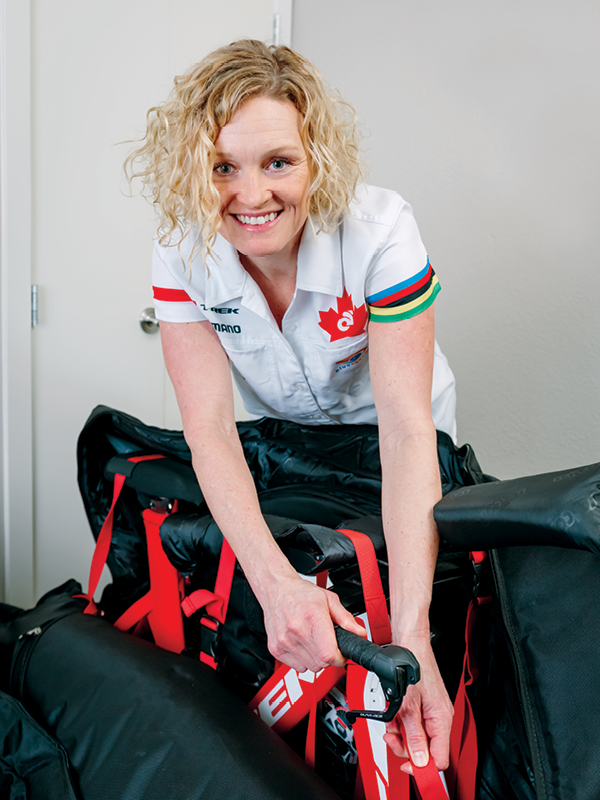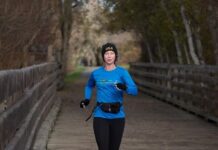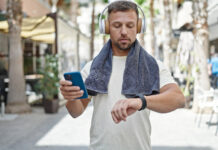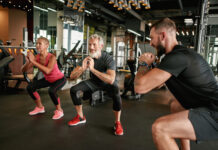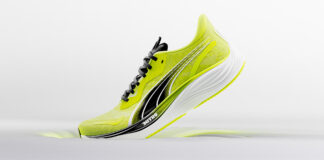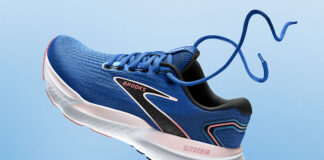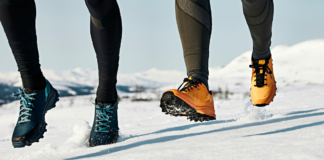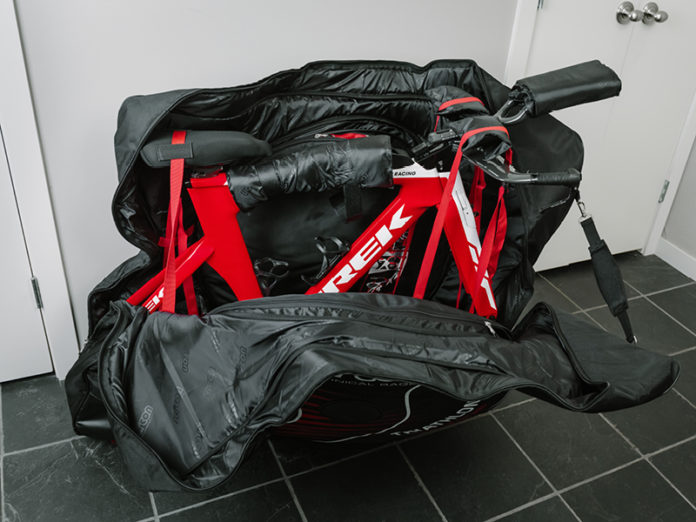
As a professional triathlete, I spend eight months of the year travelling to races around the world, so I am often toting my bike, wetsuit, shoes, goggles and other triathlon paraphernalia through airports, rental car shuttles and taxis. I have to be organized to make travel as hassle-free as possible. Here are five tips to help athletes take the stress out of travelling.
-
- Use a padded bike case with wheels that protects your bike, is easy to pack and easy to move through the airport. Look for a bag that keeps the aerobars, handlebars and seat post and saddle in place. You want a bag that hugs its contents and is light and nimble enough to manoeuvre around the airport. A light bag and packing light will save you money because airline baggage fees, particularly internationally, are punitive if the bag goes over 50 pounds.
- Ideally, your luggage includes your bike bag, one carry-on roller bag and a backpack. If you pack liquids and soft clothing around your bike, this allows you to take essentials in the roller bag. I pack my bike shoes and pedals, helmet and running shoes with a race kit in my carry-on. If your bike is delayed or lost, you can borrow or rent a bike. The same cannot be said for shoes with cleats that are custom to your body. I also pack a cycling and running outfit to train in, sunglasses, sport nutrition, wetsuit, goggles, swimsuit and cap into the carry on. I pack my passport, laptop, wallet, water bottle, snacks and noise-cancelling headphones in my backpack. This allows me to complete pre-race training as planned even if my bike is delayed.
- Bring parts that are essential for your bike, including small bolts and a derailleur hangar. I bring a spare tubular or tire and tubes to the race.
- Take a water bottle and light snacks in your carry on. You can fill your empty water bottle after clearing security. Good travel snacks include apples, pretzels, protein bars and dried fruit.
- Do some light training the day before and/or the day of travel, but no hard sessions. I have exposed myself to illness by overdoing it in the 24 hours before a travel day and ended up unable to perform by the time I got to the race. Travelling is taxing and does not count as a rest day, so make sure your body is strong enough to handle the germs it is going to encounter.
-
[/media-credit] Melanie McQuaid is professional triathlete based in Victoria, B.C.
Photo: Simon Desrochers

